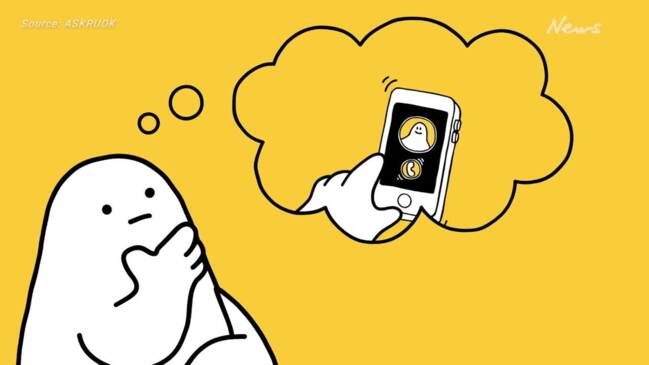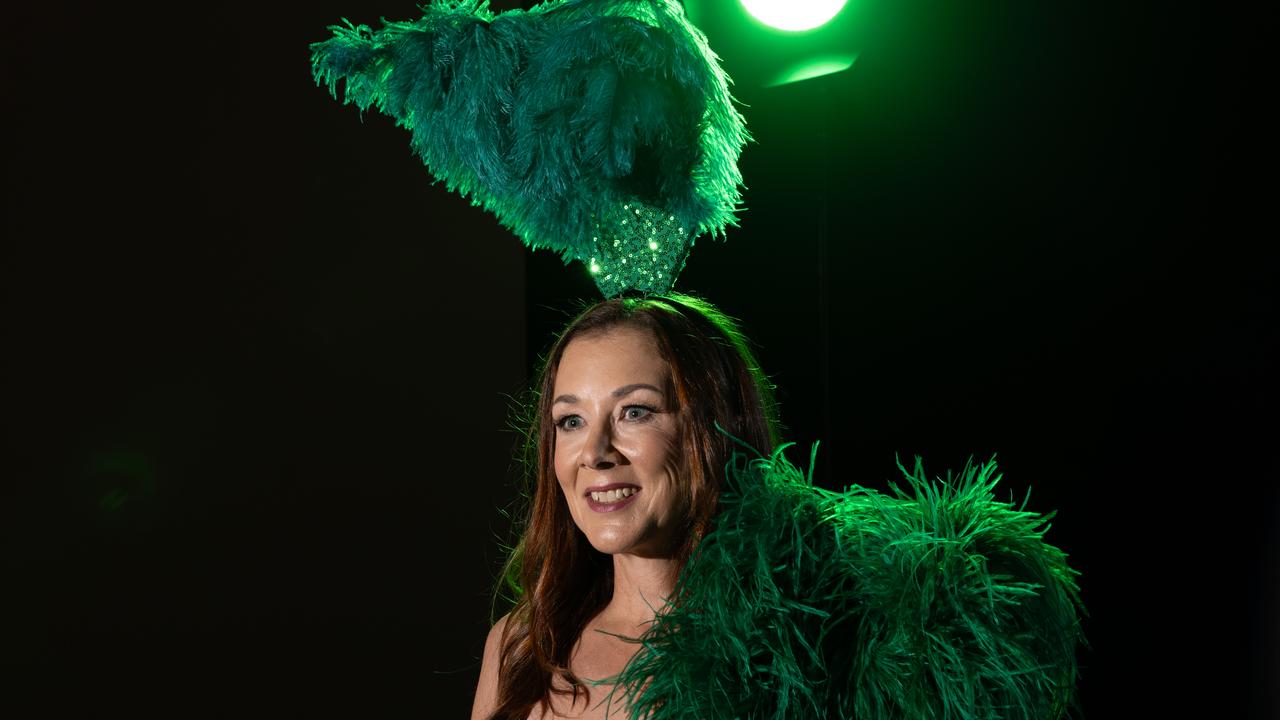‘Most radical discovery in 100 years’: Psychologist Steve Biddulph reveals mental health breakthrough
Mental health continues to be a challenge for many Aussies but there is fresh hope after a game-changing breakthrough.

News
Don't miss out on the headlines from News. Followed categories will be added to My News.
A radical understanding is emerging in mainstream neuroscience to explain our currently terrible mental health, as well as something closely related – our wider problems with living in harmony with the natural world.
In a nutshell, it is this: that we have lost touch with the animal part of our mind.
And it’s a really important part – the part that helps us to let go of anxiety and be fiercely strong when we need to be. It also helps us to shake off bad memories and convert them to growth. And leads us to be more loving to ourselves and the world. To be able to “open our hearts in hell”.
This part of our mind is the one that our ancestors (and all other animals) used for millions of years to live free and happy lives, but that we have now almost completely lost from our awareness.
This book is about how to get that part of you reactivated, to coax it out of the thickets of your mind and into the sunshine; a fierce and tender ally for life.

This book is bursting with stories and ideas, but every word and sentence is directed towards one single goal: to equip you and your loved ones with a life-changing skill.
That skill is the ability to “converse” with the silent half of your own brain – the right hemisphere and its vast network of nerves running through your body. Brain scientists have all kinds of technical names for this part of you, but I think you will like the one I use: I call it your Wild Creature Mind.
This is the part of our brain that our close relations – birds and animals – have used to successfully live their lives for over millions of years. It is also the part famously used by people like Albert Einstein and other breakthrough-making scientists to solve complex scientific problems. While this half of your mind is certainly ancient, it is neither primitive or simple. In fact, it is astonishingly sophisticated, as we will soon see.
The animal part of your mind is the key to good mental health because it is the “real you” not the tangle of thinking, worry and ego that you think is you. It’s the you you were when you were a little child, full of direct experience and wonder. It’s where your empathy comes from. And also your real boundaries – your animal wisdom about what you need and don’t need in your life. Your earthiness and joy live here. Your ability to love. It’s the clever part of you that reads human faces, knows who to trust.
It can resolve anxiety by getting you out of your own thinking, and it has the tools to release held-in trauma – the nightmares, intrusive memories and fears affecting so many people.
I know that these sound like enormous claims, but the science is clear, and so is the word from practitioners who are teaching and using these skills around the world.

After over 40 years as a therapist and a parent educator, I believe that this is a breakthrough in our long struggle to turn around our plunging mental health. And, more than that, it might transform the way that we human beings live in the world.
We’ll never get along well with nature, if we can’t get close to our own nature. So much that is wrong for us – anxiety, violence, conflict and destruction – comes from having these inner storms and terrors that arise when people are out of touch with their own hearts.
Your Wild Creature Mind is like a GPS inside you, which can help guide you every day towards being truer to yourself, and more caring for other people. But first you have to reawaken your awareness of it, and become friends. You have to build a relationship with your deeper self. That is what this book aims to teach you.
The skills we will soon show you are so simple you can teach them to small children. They can help a teenager’s confidence or sense of direction. But they can also help old people face things that they are afraid of, and live fully to the very end. (That would be my category!)
Like any new skill (learning to swim, for instance), what we will teach you is a bit elusive to begin with, but will soon become natural and easy. (And like knowing how to swim, once you have it, you have it forever.)
This skill is harder for some people than others, so we will hang in there with you and come at it from different ways until you master it.
You know how to do this. In fact, you were born doing it; you just need to remember.

There are millions – some suggest as many as one in three of all young people today – who find the world we are living in almost impossible to bear.
Parents of girls today are haunted by stories of self-harm, eating disorders and suicide attempts; they seem to be happening in every classroom, every street. Boys’ problems are somewhat different, but equally problematic. (In very broad terms, girls implode, and boys explode, but there is every gradation in between.)
Many adults too – of all ages – struggle to go on with their lives. (We worry for our kids but we are not far behind.) Intergenerational trauma ripples through our families and our communities. Disillusionment and fear for the future stalk the planet. I won’t swear anywhere else in this book, but it’s the only word that fits here: life has become seriously f*cked.
So there is only one question that is worth asking: what do we do to fight back? How can we get the human race – and ourselves – back on track? You might be shocked to learn that some of the world’s best neuroscientists think they have an answer.
The Astonishing Idea That We Have Two Minds
At the heart of this book is the most radical discovery in a hundred years of neuroscience and psychology. It is that our brains are divided into two halves for a reason – because, astonishing as it might sound, we also have two minds. And these two minds each have an entirely different way of approaching life.
Successful living is a team effort between these two selves, and all animals in nature manage this routinely. But in recent centuries, we humans we have numbed out one of those halves. It has fallen silent and left us unhinged, operating with half a brain. The idea will seem bewildering at first, but as you reflect on your own experience, it will start to do what all new paradigms in science do – it will explain everything so much better. So hang in with me, dear reader. This is going to be a huge help.
What do we mean by “two different ways of approaching life”?

Well, it’s like this: one of our two minds is a focused, grasping and egotistical one, living in the left hemisphere of our brain. This is the mind you are in now, as you read this book. It is good at language, fine for doing your tax, making shopping lists, building a house or organising a camping trip.
The other mind – located just a few millimetres away across a deep fissure – is your silent right hemisphere.
This side of your brain is ultra-aware, receptive, socially wired and attuned to the natural world. It is designed to help us get along with each other and be at ease in our own skin. This mind operates differently to our lonely, fretting little left brain because it is not confined to inside our skull, but also includes all the nerves of our body in a continuous neural network. It is a biological system for living an attuned and wiser life.
Over recent centuries, we have lost touch with this mind, and if we are to get back on track, we need its help.
Your own Wild Creature Mind has been there all your life, almost totally ignored. In fact it has become pretty cranky – and its attempts to get your attention are what make you anxious or explosive or haunted with nightmares or all the symptoms of poor mental health.
But once released, it is – like any animal – forgiving and fun, full of energy and life. Depending on the situation, it can be fierce and brave. Or tender and loving. Or wildly intelligent.
As you get to know your Wild Creature Mind, you will find it a delightful companion. And little by little, it will help you to unfurl your animality – to open your senses, loosen your limbs, and simply be more alive. More here.

How Your ‘Other Mind’ Works and How it Talks to You
The human brain, and every brain of every living creature, has a distinct feature.
It is divided. A big gap runs down the middle, so you can actually almost separate the halves, just like you can separate an orange when you share it between two people.
Below are other, more primitive structures like the limbic system, the motor cortex and so on, and these are divided as well. Nature really wanted us to have two separate brains.
The two halves are normally called “hemispheres”, so in the picture you are looking at you can only see the right hemisphere.
The left hemisphere is hidden from view on the other side. The left hemisphere, the unseen one, has something very important – just above and behind where the left ear sticks out, are two areas – called Broca’s region, and Wernicke’s region.
These two brain parts handle the making of language and the understanding of language respectively. The left side of your brain is therefore the one that “does words”. And words go in lines (called sentences), so they manage linear thought.
So it easily follows that this left side is the part that you think is “you” – the part that chatters and says, “My name is …” and “I was born in …” and “I need to get something organised for dinner …” It’s good for being organised, but it’s also rather an exhausted, confused self, prone to getting into worry and tangled arguments in the middle of the night.
It can only go in straight lines, and life often just isn’t like that. The left hemisphere’s job is to be very focused.
So it is wired in a way that minimises awareness of anything else – like sensory input. It is kind of a “brain in a box”, up there in its little garret, writing stories to itself. The problem is that your left hemisphere was never meant to operate on its own.

It can be a wonderful tool, but for a rich, grounded, and effective life, it needs its right-brain partner; it needs your Wild Creature Mind.
The right hemisphere is far more deeply interlinked with your body. It is the first to receive most of the sensory input, including things which your left hemisphere doesn’t even notice. It reads other people’s faces to be able to detect their true intent, or if something is amiss, which is very important for your life to go well, whether you are raising a family or running a country. It even has nerves running into your face, showing your true intent even if you try to hide it.
The vagus nerve system going down into your torso is a double system. It sends messages like Speed up heart, Slow down stomach, and it also brings back messages from all of your inner organs, as well as muscles, skin and so on. And it is only a part of your huge sensory network going to every fingertip and toe.
Eighty per cent of our nervous system is devoted to bringing information back to our brains, especially to the right hemisphere. To your Wild Creature Mind.
How to use both your minds
You are lying in bed, unable to sleep. Anxiety is making your thoughts into a big jumble, which go round and round getting nowhere. It’s time to use your Wild Creature Mind!
First, notice, that this anxious feeling is actually coming from your body. It is a sensation down inside you, a clutch around your heart, or a churn in your stomach, or something else.
Instead of thinking: “I am anxious” say it to yourself this way: “Something in me is anxious”. Notice how this starts tomake it a separate thing – which you can notice without being caught up in it. Find exactly where it lives. It always hasa location. You can picture and feel where it is.
Then, try some words out to describe it. It is always fuzzy to begin with.
Swirling? Clenching? Tight? Fluttering?
As you try out the words, you will get a feeling of yes or no, right or wrong, until you find the right words. This is because your left brain (where words live) is starting to connect with your right brain, which is trying to tell you something. Your rightbrain speaks the language of body sensations, like all animals, and it wants to guide you.
Make that sensation welcome, give it room. See what pops into your head. Once you are listening to your wild creature side, it will calm down. It just wants to help you, and it knows things you have forgotten.

It will help you feel safe, or tell you what you need to do. Like a wild creature emerging from the thickets of your mind, it is an incredibly smart resource. It will be so pleased you are listening at last to a whole forgotten side of your brain. Like a panther walking beside you, it will be there, letting you know its advice, its profound and all remembering wisdom, helping you be calm, or fierce, moment by moment for the rest of your life.
More Coverage
Originally published as ‘Most radical discovery in 100 years’: Psychologist Steve Biddulph reveals mental health breakthrough




